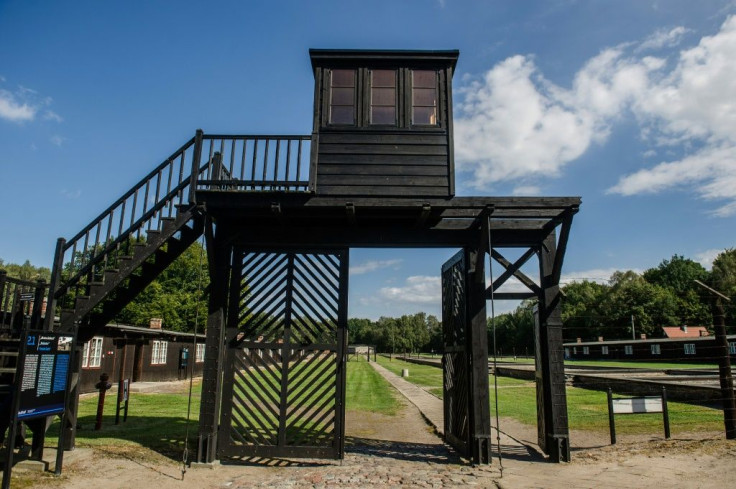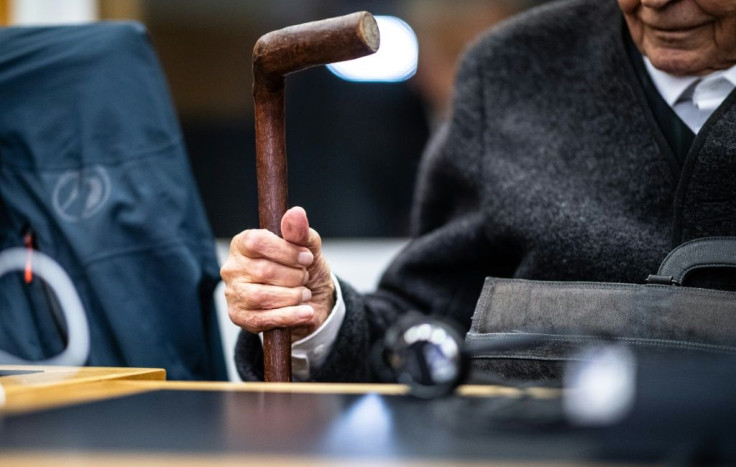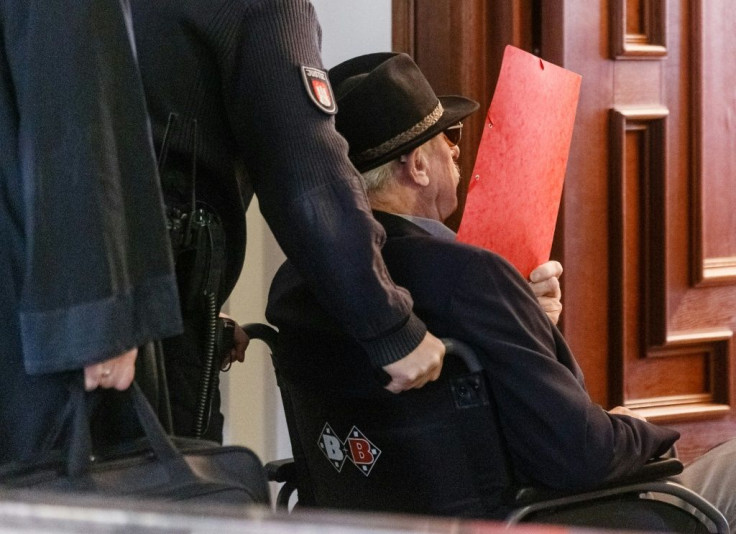Ex-SS Guard, 93, 'Sorry For What He Did', German Court Hears

A former SS guard, 93, said he was sorry for his actions as he went on trial in Germany on Thursday for complicity in the murder of more than 5,000 people at a Nazi concentration camp during World War II.
In what could be one of the last such cases of surviving Nazi guards, Bruno Dey stands accused of abetting the murder of 5,230 people when he worked at the Stutthof camp near what was then Danzig, now Gdansk in Poland.
While he insisted that he did not join the deadly operation voluntarily, he voiced regret for his actions.
"That's what he said in his interrogation: He felt sorry for what he did," said his lawyer Stefan Waterkamp.
"It was also clear to him that (the inmates) were not in there because they were criminals, but for anti-Semitic, racist and other reasons. He had compassion for them. But he did not see himself in a position to free them."
Seated in a wheelchair, Dey wore a hat and sunglasses and hid his face behind a red folder as he entered the courtroom.
Waterkamp said his client was "ready to respond to all questions", underlining that Dey "did not join the SS voluntarily".
Prosecutors said nevertheless that as an "SS guard at Stutthof concentration camp between August 1944 and April 1945, he is believed to have provided support to the gruesome killing of Jewish prisoners in particular".

Although the trial comes decades on, Ben Cohen, grandchild of a survivor, said "it's a really powerful way to acknowledge that we're not just going to look away and we're not just going to just turn around and say 'this is finished, we do not need to think about it anymore.' These things are as relevant today as they ever were."
Jewish groups underlined the trial's importance in light of contemporary far-right anti-Semitic violence after last week's deadly shooting in the eastern city of Halle that included a synagogue.
"Why are you doing this trial today? Remember what happened in Halle," said Efraim Zuroff of the Nazi-hunting Simon Wiesenthal Centre.
'Cog in the murder machine'
During Dey's time at the camp, the "Final Solution" order to exterminate Jews was issued by the Nazi leadership, leading to the systematic killing of inmates in gas chambers, while others died of starvation or because they were denied medical care, prosecutors said.

Dey is being tried by a juvenile court in Hamburg because he was 17 when he first worked at Stutthof.
According to German media, Dey, who now lives in Hamburg, became a baker after the war.
Married with two daughters, he supplemented his income by working as a truck driver, before later taking on a job in building maintenance.
The law finally caught up with him as a result of the legal precedent set when former guard John Demjanjuk was convicted in 2011 on the basis that he served as part of the Nazi killing machine at the Sobibor camp in occupied Poland.
Since then, Germany has been racing to put on trial surviving SS personnel on those grounds rather than for murders or atrocities directly linked to the individual accused.
In the same vein, Dey is "accused of having contributed as a cog in the murder machine, in full knowledge of the circumstances, so that the order to kill could be carried out," prosecutors said.
'Speak up'
During pre-trial questioning, Dey said he ended up in the SS-Totenkopfsturmbahn (Death's Head Battalion) that ran the camp only because of a heart condition that prevented him from being sent to the front, according to Tagesspiegel daily.
Dey also reportedly confirmed he knew of the camp's gas chambers and admitted seeing "emaciated figures, people who had suffered", but insisted he was not guilty, according to the daily Die Welt.
The Nazis set up the Stutthof camp in 1939, initially using it to detain Polish political prisoners.
But it ended up holding 110,000 detainees, including many Jews. Some 65,000 people perished in the camp.
Since the landmark Demjanjuk ruling, German courts have convicted Oskar Groening, an accountant at Auschwitz, and Reinhold Hanning, a former SS guard at the same camp, for complicity in mass murder.
Both men were found guilty at the age of 94 but died before they could be imprisoned.
© Copyright AFP 2024. All rights reserved.





















